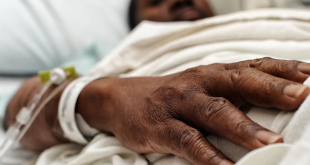
If we don’t consciously work to overcome these challenges, they can become a part of our identity and negatively influence the person we become.
Childhood trauma, for example, can stay with us for life and take time to heal from. It’s important to recognise these connections as that will help us work intentionally on personal growth and healing to overcome any negative effects from the past.
This article will explore how negative childhood experiences can impact adulthood:
Perceptions of love and intimacy
The way we were loved as kids affects how we see and expect romantic relationships as adults.
Children who grew up feeling loved and cared for in a warm environment are more likely to have healthy and stable relationships when they grow up. They know what it’s like to be treated well and trust others easily.
On the contrary, if someone experienced abuse or neglect as a child, it can be hard for them to trust others. This can make it difficult for them to have a fulfilling and satisfying relationship with people or even develop a romantic bond.
Unhealthy attachment
When children receive consistent care and affection, they develop a sense of safety and trust that lays a strong foundation for healthy relationships in adulthood. On the other hand, inconsistent or neglectful caregiving from parents or guardians can lead to insecure and unhealthy attachment styles, making it difficult to form meaningful connections later in life.
If you had a harsh upbringing and struggle with insecure attachment, it is possible to overcome these challenges. Work on yourself, and seek support from understanding friends, family, or professionals that can help you learn to trust and build healthier relationships. By healing from past wounds, you can break free from the negative cycle and have a more fulfilling adult life.
Low self-esteem and confidence
Self-esteem and confidence are emotions that reflect one’s self-perception and belief in oneself. The experiences you had as a kid played a big role in shaping these feelings.
If you were encouraged and praised by your parents, you probably felt good and had a confidence boost. This makes it easier to handle tough situations and be confident as an adult. A child who faced criticism, rejection, or neglect during childhood can grow up with behavioural patterns of self-doubt and low self-esteem.
It’s important to understand how past experiences affect how you see yourself now. Yes, you had a tough time growing up, but you can work on building your self-esteem and confidence by surrounding yourself with supportive and positive people and by being kind to yourself. You have the power to change how you feel about yourself and grow into a more confident and strong individual.
Emotional neglect
How one handles their feelings and emotions as adults is deeply influenced by early childhood experiences. Children who are taught to understand and cope with their feelings in a healthy manner tend to develop effective stress management skills and constructive ways to deal with challenges later in life.
On the other hand, individuals who endure emotional neglect or abuse as kids may find it harder to manage their emotions as adults. These challenges can affect their ability to maintain stable relationships and handle stress in a positive way.
N.B: Even if you had a tough time as a child, you can still learn how to manage your emotions as an adult. It would take a lot of effort but it’s not impossible. You have the power to can heal and grow, no matter what you went through in the past.
Coping mechanisms
Coping mechanisms are like the ways we deal with challenges and tough situations. Our childhood experiences can shape the coping mechanisms we develop as adults. People who had traumatic experiences in their childhood are more likely to adopt constructive approaches to managing difficulties also called coping mechanisms.
For instance, if a child was sexually abused, they may very much likely grow up either being a sex addict or hating the act altogether and completely avoiding them. Similarly, if someone faced other hardships as a child, they might develop habits to help them cope or escape from their reality. Some people might end up adopting harmful coping mechanisms, like drug abuse or avoidance. This can happen when they struggle to deal with the stress and challenges that come with being an adult.
Our childhood experiences have a strong impact on how we live as adults. Knowing how these traumatic experiences affect us in adulthood can help us deal with unresolved problems, heal from past hurts, and become better people.
Sometimes, seeking professional help and surrounding yourself with good people, can be really helpful in overcoming the effects of our childhood experiences. It’s never too late to heal.
 Top Naija News: Nigerian News, Breaking News Nigeria and World News Top Naija News is a daily news publication in Nigeria, delivering the latest breaking news in Nigeria and around the world.
Top Naija News: Nigerian News, Breaking News Nigeria and World News Top Naija News is a daily news publication in Nigeria, delivering the latest breaking news in Nigeria and around the world.



